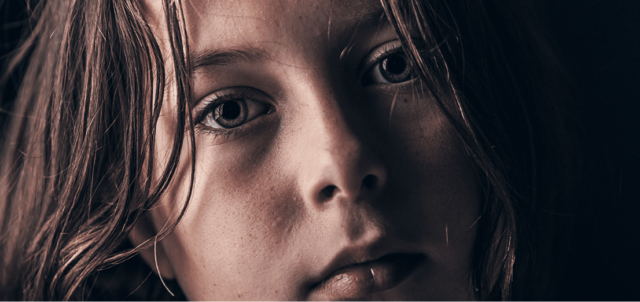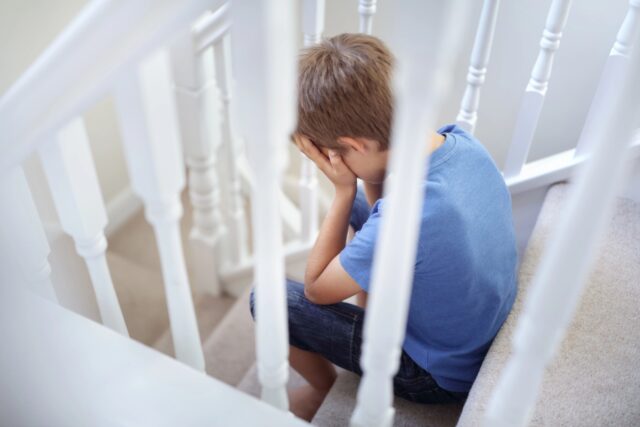The difference between acute stress and PTSD is that acute stress can be diagnosed within two to three days of an upsetting event and is usually short-term, while PTSD can be diagnosed one month after the event and involves long-term difficulties with coping.
A Look at Acute Stress Disorder and PTSD
After an upsetting or traumatic event, children can respond in a variety of unhealthy ways
Clinical Expert: Jamie Howard, PhD
en EspañolIn the wake of an upsetting event, children and adolescents can be expected to react in ways that concern parents. The good news is that these reactions — which can include a return or “regression” to earlier behaviors in young kids, changes in eating or sleeping habits, physical complaints, social withdrawal — are typical of young people who have been through a very stressful experience.
Most kids return to their regular selves after a time, and natural recovery times tend to depend on how close, both physically and emotionally, the child was to the event. But some kids can’t recover on their own, and we call this child traumatic stress — when the exposure overwhelms their ability to cope with what they have experienced.
There are two disorders that mental health professionals can diagnose and treat in young people after a traumatic event: acute stress disorder (ASD) and post-traumatic stress disorder (PTSD). The key to both of these disorders is not unusual symptoms, since all of the symptoms are part of a typical response to a disruptive event. The key is that these symptoms are severe enough to impair a child’s ability to function in day-to-day life.
ASD and PTSD are essentially on a spectrum. The shared symptoms include:
- Foggy, dazed, detached demeanor, difficulty remembering parts of the event
- Intrusive thoughts and/or distress when reminded about the traumatic event
- Avoidance of reminders of the traumatic event
- Anxiety or hyperarousal
- Difficulty with basic tasks (school, friendships)
ASD can be diagnosed 2 to 3 days after the event is over, and is a disorder of short-term reactions to trauma. PTSD can be diagnosed beginning one month after the event, and represents chronic, long-term maladaptive coping.
But the time criteria are not that cut and dry, cautions Child Mind Institute trauma response group leader Jamie Howard, PhD. “The lasting effects of a traumatic event might continue for many families,” she says, and after an upsetting event parents and community members should be on the lookout for symptoms of traumatic stress well into the future.
Finally, even if a child or adolescent doesn’t have a traumatic response to an event, changes in routine or displacement from home can still produce impairing symptoms. After a significant life change, professionals can diagnose adjustment disorder, which is defined by impairing symptoms including anxiety or depressed mood, trouble sleeping, regular crying spells, and school refusal. In adjustment disorder these reactions are much more intense than would typically be expected.
Frequently Asked Questions
Was this article helpful?
Related Reading
-
 What’s the Best Treatment for PTSD in Children?
Dr. Joan Kaufman explains the four stages of trauma-focused cognitive behavior therapy
What’s the Best Treatment for PTSD in Children?
Dr. Joan Kaufman explains the four stages of trauma-focused cognitive behavior therapy
-
 Signs of Trauma in Children
What to watch for in the weeks and months after an upsetting event
Signs of Trauma in Children
What to watch for in the weeks and months after an upsetting event
-
 What Makes an Event Traumatic for a Child?
Experiences before and after affect how severe the injury will be
What Makes an Event Traumatic for a Child?
Experiences before and after affect how severe the injury will be
-
 Quick Guide to Acute Stress Disorder
Acute stress disorder is a mental health condition that happens when a child has a very…
Quick Guide to Acute Stress Disorder
Acute stress disorder is a mental health condition that happens when a child has a very…
-
 Complete Guide to Substance Use + Mental Health
When children are struggling with both a substance use disorder and a mental health disorder,…
Complete Guide to Substance Use + Mental Health
When children are struggling with both a substance use disorder and a mental health disorder,…
-
 What Is PTSD?
The disorder looks different in children as they develop
What Is PTSD?
The disorder looks different in children as they develop
-
 What Are Adjustment Disorders?
When kids have big reactions to stressful events
What Are Adjustment Disorders?
When kids have big reactions to stressful events
-
 Quick Guide to Post-Traumatic Stress Disorder (PTSD)
Post-traumatic stress disorder (PTSD) is a mental health condition that can affect kids who have…
Quick Guide to Post-Traumatic Stress Disorder (PTSD)
Post-traumatic stress disorder (PTSD) is a mental health condition that can affect kids who have…
-
 Is It ADHD or Trauma?
Why the symptoms are often confused, and how to avoid a misdiagnosis
Is It ADHD or Trauma?
Why the symptoms are often confused, and how to avoid a misdiagnosis
-
 Quick Guide to Reactive Attachment Disorder
Children with reactive attachment disorder (RAD) are not able to form the important bond that…
Quick Guide to Reactive Attachment Disorder
Children with reactive attachment disorder (RAD) are not able to form the important bond that…
-
 Complete Guide to PANS and PANDAS
How to recognize these forms of severe, acute-onset OCD, how they are diagnosed, and the…
Complete Guide to PANS and PANDAS
How to recognize these forms of severe, acute-onset OCD, how they are diagnosed, and the…
